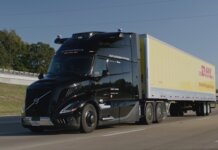In the latest news following the Dieselgate scandal, U.S. District Court Judge Charles Breyer has formally signed partial consent decrees requiring Volkswagen to pay $225 million, including $66 million to California, for harm resulting from the sale of its 3.0-liter diesel passenger cars that included emissions control “defeat devices.”
Breyer signed the agreements with the automaker, the California Air Resources Board (CARB), the U.S. Environmental Protection Agency and the U.S. Department of Justice. One decree is a national agreement; the second is California-specific.
As noted, California will receive $41 million from the national agreement and $25 million under the California agreement.
“These agreements close another chapter in one of the most sordid efforts to evade air quality regulations ever uncovered by CARB’s engineers and technicians,” says CARB Executive Officer Richard Corey. “It is now time to get on with the serious business of mitigating the environmental harm caused in this case and continue our efforts to make sure nothing like this occurs again.”
As previously reported, VW admitted to CARB engineers in November 2015 that it installed defeat devices that altered the operation of emissions control equipment in light-duty, 3.0-liter passenger vehicles manufactured and sold between model years 2009 and 2016. There are approximately 87,000 of these vehicles in the U.S. and approximately 17,000 in California.
This is a separate partial consent decree from one approved earlier for harm from VW’s 2.0-liter diesel cars with a similar defeat device.
California will receive about $41 million from the national mitigation trust for the environmental damage caused by VW’s deception. This money will be spent on projects to reduce smog-producing pollution, such as incentivizing clean, heavy-duty vehicles and equipment in disadvantaged communities. In a separate California decree, an additional $25 million dollars will be invested to advance availability of cleaner vehicles in California’s disadvantaged communities.
According to CARB, the two sums together will provide funding to mitigate all past and future environmental harm resulting from the operation of the 3.0-liter vehicles in California.
The state will undertake a public process to allow members of the legislature and the public to provide input and comments on potential mitigation projects to be funded by the settlement.
VW has also agreed to place a second Green City project in California. This could include such features as zero-emission vehicle (ZEV) ridesharing projects or ZEV transit and freight applications. The selected city must have a population of about 500,000 and consist primarily of disadvantaged communities. A first Green City was called out in the consent decree for the 2.0-liter vehicles. No city has yet been named, CARB notes.
In addition, VW will contribute to California’s ZEV market by introducing two new ZEV models, plus the electric e-Golf, or its replacement, by 2019. One of those new vehicles must be an electric SUV. The company will also introduce a second SUV by 2020. The agency says it must collectively sell at least 35,000 of these various ZEV models between 2019 and 2025.
For the full CARB release, click here.






